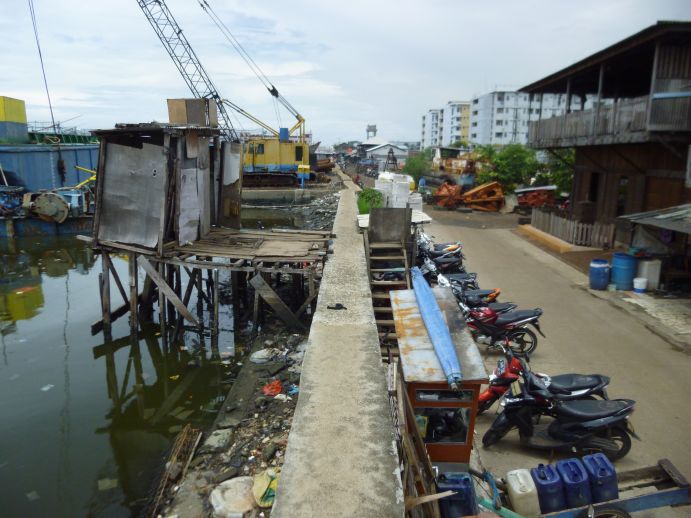TRANSCEND - Transformation Decisions for the Adaptation and Sustainability of Cities in the Face of Environmental and Socio-economic Change
Urban risk is a rapidly growing challenge, as it stems from the intersection of two megatrends of global change: urbanization and climate change.

Future risks are increasing in coastal cities in particular, as changes in flooding patterns coincide with urban growth processes. This fundamentally calls into question the sustainability of existing human-environment relationships in these cities. However, it is unclear exactly how urban vulnerability and risk trends will develop at city and neighborhood level, how different adaptation options can be identified and evaluated, and to what extent a fundamental transformation of existing urban systems is necessary to sustainably adapt to climate change and other dimensions of global change.
Project goals
TRANSCEND aims to find scientific and practical answers to these questions. In a transdisciplinary approach, the project focuses on three closely interwoven areas of work: (1) First, the development of an integrated model is planned, which can combine the assessment of future natural hazards with the scenario-based analysis of socio-economic urban development and vulnerability pathways at district level and investigate feedback effects. (2) Based on this, adaptation options will be developed and multidimensionally evaluated together with local practice partners. (3) Finally, we will investigate how decision-making and negotiation processes for adaptation take place in urban, dynamic multi-actor constellations and how they can be supported by practical assistance. Mumbai (India) and Jakarta (Indonesia), two of the world's fastest growing cities and those most threatened by natural hazards, will serve as pilot areas for the development, testing and application of methods.
Contribution to sustainability in global change
The intended outcome of the project is the development of an innovative, knowledge-based and practice-oriented method for the model- and scenario-based assessment of urban risk trends and adaptation requirements as well as for the identification and evaluation of resulting adaptation options and the development of transformation decisions. The method development is designed for transferability, so that there is a broad application potential in other cities with adaptation pressure. At the same time, the significant improvement of scientific knowledge is a central result - both in empirical and theoretical matters (e.g. to explain decision-making processes).
Project Management
Prof. Dr. Matthias Garschagen
Department für Geographie
Ludwig-Maximilians-Universität München (LMU)
Luisenstr. 37, 80333 München
Tel.: +49 89 2180-4141
E-Mail: M.Garschagen@geographie.uni-muenchen.de
Last updated on



